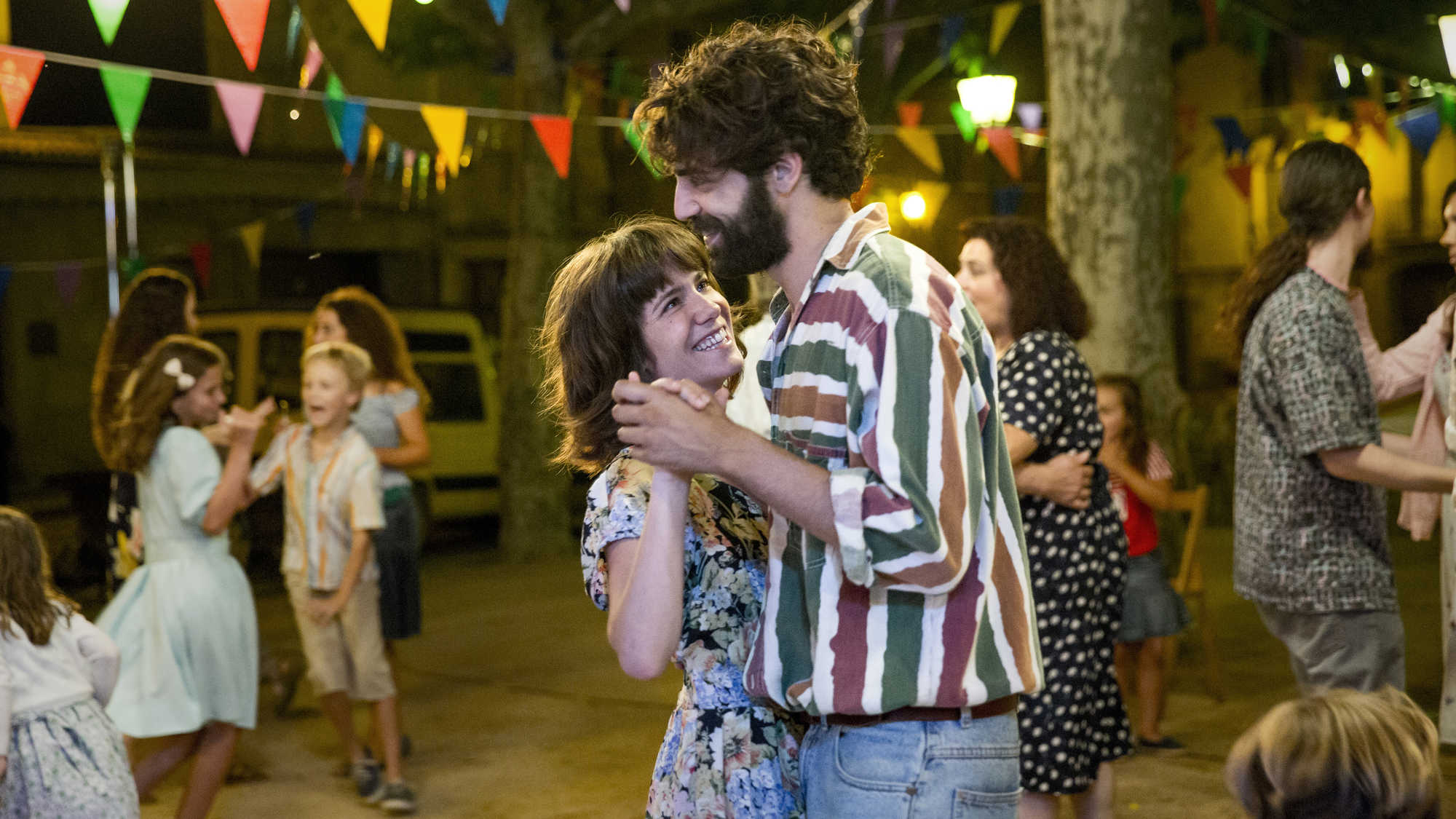
SUMMER 1993 (Estiu 1993)
Oscilloscope Laboratories
Reviewed by: Harvey Karten
Director: Carla Simón
Screenwriter: Carla Simón
Cast: Laia Artigas, Paula Robles, Bruna Cusí, David Verdaguer, Fermi Reixach, Isabel Rocatti
Screened at: Critics’ link, NYC, 5/15/18
Opens: May 25, 2018
There was a time not so far back that little was known about AIDS, about how it’s transmitted, whether it could be treated, and what you have to do to avoid the deadly virus. “Summer 1993,” known by its original Catalán title as “Estiu 1993, is removed from a time of ignorance. But when a six-year-old child’s parents die, the little girl is kept in the dark. As acted by Laia Artigas, newly orphaned Frida is removed from her digs in Barcelona to live with her uncle Esteve (David Verdaguer) and his wife Marga (Bruna Cusí). The pair have a three-year-old daughter, Anna, played by the pudgy Paula Robles. The film has “autobiographical” hinted in every frame and is indeed a memoir of the writer-director Carla Simón in her freshman movie entry. While Frida is a city girl introduced to a small-town mountain village (filmed by Santiago Racaj in Girona and Olot), you might expect her to enjoy the change as a summer vacation which will likely extend until she’s an adult. But she is troubled by the loss of parents as any child might be and is involved in a micro-power struggle with her host’s own child. In the back of her mind, she must wonder every day about the illness that took her parents’ lives but nobody is willing to be frank with her until the conclusion of the story, when Marga discreetly hints about the cause. She does assure the little girl that her folks are looking at her from heaven and that “they loved you very much,” which makes me wonder: if they are watching Frida from up there, wouldn’t they “love” her very much?
Carla Simón is intent on focusing on every detail from the spot in the mountains that gives the air of a typical village pueblo, complete with a parade toward the conclusion, performers in masks dancing around to the music of a small band, flags flying. The chickens have the run of the place and are doubtless happier than the chicks that are factory farmed in the U.S. or “cage free” but still without more than a few centimeters of space. Ms. Simón, as a six-year-old, has been indoctrinated in religion by her grandmother, Maria (Isabel Rocatti), a regular visitor who tests the girl on the words of the Lord’s Prayer. Indoctrinated, maybe, but can a six-year-old have a sense of ethics? “She has no morals,” barks her foster mother to Esteve, when Frida beckons little Anna to a wooded area, a plan in her head to see the girl injured. When Anna falls from a tree (not shown), her arm in a cast, Frida is now certain that she is on hostile ground and is determined to run away with her grandparents.
Frida is quiet almost throughout, a single tantrum hinting that she is sitting on repressed anger. Who wouldn’t be given the unfairness of being orphaned at such a young age? In that role, Laia Artigas comes across as a sweet young woman who does regret leaving her little “sister” to be injured and who, as school beckons, has made a peace with aunt and uncle—taking part in horseplay and caring especially for her foster mom who is preparing her for school with lessons in math. It appears that she will be fine, lucky to be indulged by people who like her presence, especially serving as a playmate of their own daughter. The film has few surprises, no raging conflicts, and instead serves to allow Simón to give pleasure to an audience that is content with entering the mind of a six-year-old in a sober manner without histrionics and with great attention to detail.
In fact that audience is likely to be reminded of their own childhoods, comparing their joys and sorrows with Frida’s, each of us discovering we’re not alone with our emotions after all.
Unrated. 96 minutes. © 2018 by Harvey Karten, Member, New York Film Critics Online
Story – B
Acting – B+
Technical – B
Overall – B





